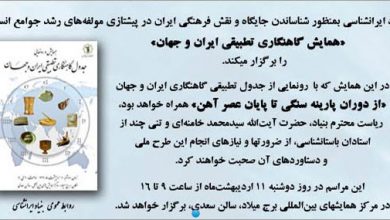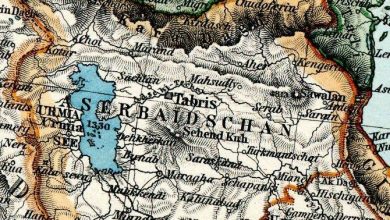The course of capitulation in Iran
Hossein Kalate//Capitulation is a treaty by which foreigners acquire the right to reside in another country and receive certain rights and benefits. “exclusive” They benefit. In Iran, this issue was raised for the first time in the Safavid era, but it was never realized. During the Qajar period and following Iran's defeat in the war with Russia, the Turkmanchai contract was imposed on Iran. In this agreement and according to its chapters 7 and 8, the law of judicial immunity of Russian advisers was imposed on Iran, and after that the British and French governments also imposed capitulation on Iran.. Until finally in 1306. This law was canceled in Iran.
Italian historians believe that for the first time in 1453, after the conquest of Constantinople, foreigners were able to obtain capitulation from the Ottoman government in favor of their own nationals.. In fact, the origin of capitulation should be traced back to 1535. He knew because at that time, Francois II, the king of France, managed to conclude a treaty with the Ottoman kingdom, Suleiman Pasha, which was later completed by other sultans, and according to those treaties, foreigners, especially the French, managed to exempt themselves from the judgment of the Turkish courts. In the Ottoman country, refer to the French courts that were formed for this purpose. ۱
Capitulation
In 1715. Rezabeg signed a treaty in 1708. The representative of France in Iran had completed and signed it. Because this treaty was signed in Versailles, the capital of France, it became known as the Treaty of Versailles. In this treaty, all the articles of capitulation are mentioned, but it should be known that the mentioned person had no mission to sign such a treaty.. Secondly, the mentioned treaty was not approved by the king of Iran.
In 1723. The French consul in Shiraz, when Shah Sultan Hossein Safavi was suffering from the Afghan sedition, was able to impose this treaty on the king and get it signed by Shah Sultan Hossein.. Thirdly, most importantly, the French government itself did not use this contract in any way, because the French were forced to leave Iran for a long time as a result of internal revolutions.. And this issue is well from the law of 1836. which is related to the implementation of the decrees issued by the countries where the capitulation regime is established is clear and obvious because in that law Iran is not mentioned in any way and there is no mention of the treaties of 1708, 1715 and 1722. 2
The origin of the capitulation regime in Iran should definitely be considered the Treaty of Turkmanchai dated February 10, 1828..
After the death of Nadershah Afshar and the weakness of the Iranian government, Tsarist Russia in pursuit of its expansionist policy began to encroach on Iranian soil, especially the northern states.. The first period of the Iran-Russia wars led to Iran's military defeat and led to the conclusion of the Golestan Peace Treaty in 1813. . The government of Iran, which was in a position of weakness and incapacity, tried to get the support of France, but the Treaty of Tilsit between Napoleon and the Russian Tsar turned Iran's hopes towards France's support in times of need into despair.. The second period of Iran-Russia wars started and this time also led to the defeat of the Iranian government and military and led to the conclusion of the 1828 Treaty of Turkmenchai.. According to this agreement, important parts of the northern states of Iran were handed over to Tsarist Russia. In other clauses of this treaty, the right of consular jurisdiction was unilaterally imposed on an independent country for the first time. Chapters 7 and 8 of this treaty expressly deal with the issue of granting consular jurisdiction (Capitulation) It is related to the Russian government, which comes in terms of the importance of the same chapters below.
Chapter 7: In accordance with the laws and customs of the Russian government, all disputes and litigations between Russian nationals are settled only by the ambassador's ruling and disputes between Russian nationals, as well as disputes and disputes between Russian nationals and Russian nationals. In other countries, if the parties agree to the government of Musharaliyah, disputes and disputes that arise between Iranian citizens and Russian citizens are referred to the courts of Iran. Lawsuits that have been terminated in accordance with the law will not be reviewed again. If the revision is necessary, it should be summoned by the Minister Mukhtar or “Duffer charge” or the Russian consul in the presence of the interpreter of the embassy or consulate in one of the offices of his majesty the emperor of Iran which is held in Tabriz or Tehran, it is decided that the retrial has been done.
Chapter 8: Whenever a Russian citizen is accused of a crime against the citizens of another country, he will not be subjected to assault and harassment unless his participation in the crime is proven and proven, and in this case, if the Russian citizen is personally accused of a crime, the state courts They should not investigate and judge the said crime without the presence of an agent from the embassy or consulate, and when there is no embassy or consulate at the place where the crime occurred, the agents there will send the criminal to a place where there is a consulate with an agent from the Russian government. be established. The local ruler or judge imposes and signs the affidavits against the suspect. This document is written in this way and sent to the place of trial. It will be considered as a valid document of the lawsuit unless the guilty party clearly proves its inaccuracy.. After the guilt of the guilty person has been proven and the sentence has been issued, the case will be submitted to the minister of power or the charge d'affaires or the Russian consul, who will be sent to Russia and there he will comply with the laws and policies.. ۳
Consequences of capitulation in Iran
The support of foreign consuls for the interests of their nationals in the capitulation regime was very broad and its executive power was also considerable. Foreign consuls gradually extended their support from nationals of their government to domestic nationals as well . First, the interpreter of the consul and the employees and crew who were domestic citizens, then some other domestic citizens were protected by the consul and benefited because of being of the same religion, or being a party to a transaction, or performing other consular affairs.. In some cases, in exchange for money or to any domestic citizen who requested, they were given letters with easy conditions, without obtaining the consent and approval of the government of the mission location.. This led to political men being pushed towards foreigners and some openly accepting the citizenship of a foreign country in order to enjoy more benefits.. The lack of authority of the central government causes conflicts and disputes between the consulates of different countries in the country. One of the other interventions that was recognized as part of the duties of the Russians as a result of the capitulation law, and they considered themselves independent in it. “Dealing with the affairs of Russian citizens and dealing with the affairs of persons under the protection of the consular administration and … Was” Therefore, according to the increasing interventions of political and consular representatives, we come to the conclusion that the real government of Iran was in the hands of ambassadors and high-ranking representatives of foreign countries..
Abolition of capitulation in the countries of the world
The regime of capitulation in different countries of the world was destroyed in different ways at the end of the 19th century and the beginning of the 20th century.. The first country to cancel capitulation in its country by signing a contract was Japan, which achieved this important goal in 1899.. Greece in 1914, Morocco in 1920; Turkey finally in 1923. Thailand (thirtieth) In 1927, and Iran in 1928, they were able to counter the capitulation and cancel it..
Abolition of capitulation in Iran
When the people rose up against internal tyranny and demanded constitutionalism, the Ottoman government unilaterally canceled the capitulation regime without the consent of foreigners.. Eliminating capitulation in Iran became one of the important articles of the manifestos of Iranian parties and every party and group wanted to cancel this privilege.. In the year 1297 . A letter of approval was issued in the government of Samsam al-Sultaneh, which stated that the treaties, agreements, and concessions that the Russian autocratic government and its subjects have taken from Iran for the past one hundred years were all under pressure and coercion or by other factors. Legitimacy such as threats and bribery is against the interests of the country and the people of Iran, and it will be canceled based on the constitution and the right to property in Iran.. 4. The shaky basis of capitulation in Iran should be found in the agreement between Iran and the Soviet Union in 1921.. All concessions, including the capitulation, that the Tsarist Russian government had taken from Iran were canceled in this treaty. After canceling the capitulation of Mosaddeq al-Sultaneh, the ruler of Azerbaijan in 1301, he wrote to the Prime Minister as follows:” The forbidden position of the headship of Galilee, the noble ministers of Damat Azmatah; With the governments of Russia and Armenia, whose capitulation has been canceled, whether it is necessary to inform the relevant consulate or not at the time of summoning the nationals of the said states, until today, the Russian consul has taken direct action, and this issue has been raised by the Russian consul. Consuls are summoned. It is requested that you issue the necessary order”5. In this way, we find out that after the approval of the government of Samsam al-Sultaneh and the agreement of 1921, the government authorities of Iran have not yet reached a single agreement and a decisive opinion regarding how to deal with Soviet citizens.. After Reza Khan came to power and the extinction of the Qajar dynasty, the British, who were satisfied with the establishment of a strong anti-communist government in Iran, did not see any obstacle to facilitate the abolition of capitulation and some other concessions in order to increase their credibility with the government and the new king.. The First World War, the establishment of the League of Nations, the abolition of capitulation in Turkey, the revolution of October 1917 in Russia and the abolition of the Treaty of Turkmanchai, the issuance of the approval letter of the cabinet of Samsam al-Sultaneh Bakhtiari and the third coup of March 1299. They were one of the important factors that played the main role in speeding up the definitive and complete abolition of capitulation in Iran.
Revival of capitulation in Iran
With America's involvement in World War II, the country's forces were stationed in Europe and Asia and gained a significant presence outside of America. A bilateral defense contract was signed for American military advisers who were employed by the Iranian government. Five months later, the US government started negotiations with Iranian authorities regarding the legal status of its forces. Because the American authorities were aware of the history of capitulation in Iran, they wanted to complete the issue of capitulation quietly and at the lowest cost, and in fact with the consent of the Shah himself.. On the other hand, due to the inability of Mohammad Reza Pahlavi to carry out the land reform program, the government of Jan . Kennedy was forced to appoint Ali Amini as the prime minister. Dr. Ali Amini had a main mission, which was the implementation of land reforms. . The land reform bill was approved by the government board on December 20, 1340. After two months of approving the land reforms, the American government submitted a proposal to grant immunity to its military advisors.. They thought that because Amini's government is effective with direct pressure from the Americans, it will quickly agree to their request.. But this veteran politician and Qajar prince, who was well aware of the history of capitulation, always evaded the request of America until he finally gave his place in 1341 to Asdaleh Alam.. The government of Asdalah Alam did not get the position of planning and implementing the American plan of capitulation until March 17, 1342, when it was replaced by the government of Hassan Ali Mansour.. In July 1343, Mohammad Reza Shah went to America and was warmly welcomed by the American authorities. In the issues discussed by the parties, the granting of American military aid was subject to the establishment of judicial regulations and the immunity of American soldiers.. After the Shah returned from America, the said bill was proposed in the Senate. On 3rd of August 1343, the Senate convened an extraordinary session to examine several bills. This meeting continued until midnight, and after various bills were proposed, at midnight, the capitulation bill, whose text was as follows, was proposed. : single substance : According to the bill number 18-2291-2157-1125/1342 Sh.. The government and its appendices were presented to the Senate on 21/11/42. The government is allowed to exempt the presidents and members of the United States of America military advisory boards in Iran, who are, according to the agreement related to the employment of the imperial government, from immunity that includes employees Administrative and technical described in the paragraph (And) Article 1 of the Vienna Agreement signed on April 18, 1961. (29 April 1340) It has been signed.
It is noteworthy that Hassan Ali Mansour tried to trivialize this bill by distorting the facts. On Tuesday, 21/7/1342, the National Assembly started the review of the said bill. Finally, the voting took place at five o'clock in the afternoon and out of the 136 representatives present at the meeting, the said bill was approved with 74 votes in favor and 61 votes against..
Imam Khomeini's reaction (way ) against capitulation

Undoubtedly, Imam Khomeini's position (way) Against the resolution of the parliament (Capitulation) And after that, his exile is a turning point in the contemporary history of Iran. The imperial regime, which was afraid of the speeches and revelations of His Holiness, sent a representative to the city of Qom and sent this message to the Imam.: « … In order to gain image among the people of Iran, America is working with all its might, pouring money, and in terms of power, it is in a position where any attack on it is far more dangerous than attacking the first person of the country.. Ayatollah Khomeini, if they intend to make a speech, they should be very careful not to offend the American government, which is very dangerous and will be met with a strong reaction from them, no matter what they say, even attacking the Shah is not so important.
Despite the emphatic message for Imam Khomeini (way) He gave a historical speech on 4th of Aban 1343, which we will discuss a part of: “If an American servant, if an American cook, assassinates your impersonator in the middle of the market… Iranian courts do not have the right to try… If the Shah of Iran steps on an American dog, he will be held accountable…”.۶
These revelations and speeches caused the tyrannical regime, which took orders from America and its representatives, to exile the Imam from Iran.. The seed they sowed in 1342-3 finally blossomed in 1357 and with the victory of the Islamic Revolution and the formation of the Revolutionary Council, the capitulation bill was canceled forever.. ۷
__________________________________________
1. Ali Akbar Dehkhoda, Dictionary, Tehran, University of Tehran, 1372, p. 36 .
2. The same, p. 37 .
3. Massoud Asadollahi, Revival of Capitulation and its Consequences, Tehran, Islamic Propaganda Organization, Publishing Center, 1373 . P. 30 .
4. The same, p. 36 .
5. Document No. 12402 of the Records Department of the Institute of Contemporary History of Iran
6. Hamid Rouhani (pilgrimage), Imam Khomeini Movement, Tehran Cultural Unit of Shahid Foundation, 1364. P. 708 .
7. Mohammad Taghi Alavian, Knowing the truth [No place, no place, no place] P. 28- ۲۱ .





